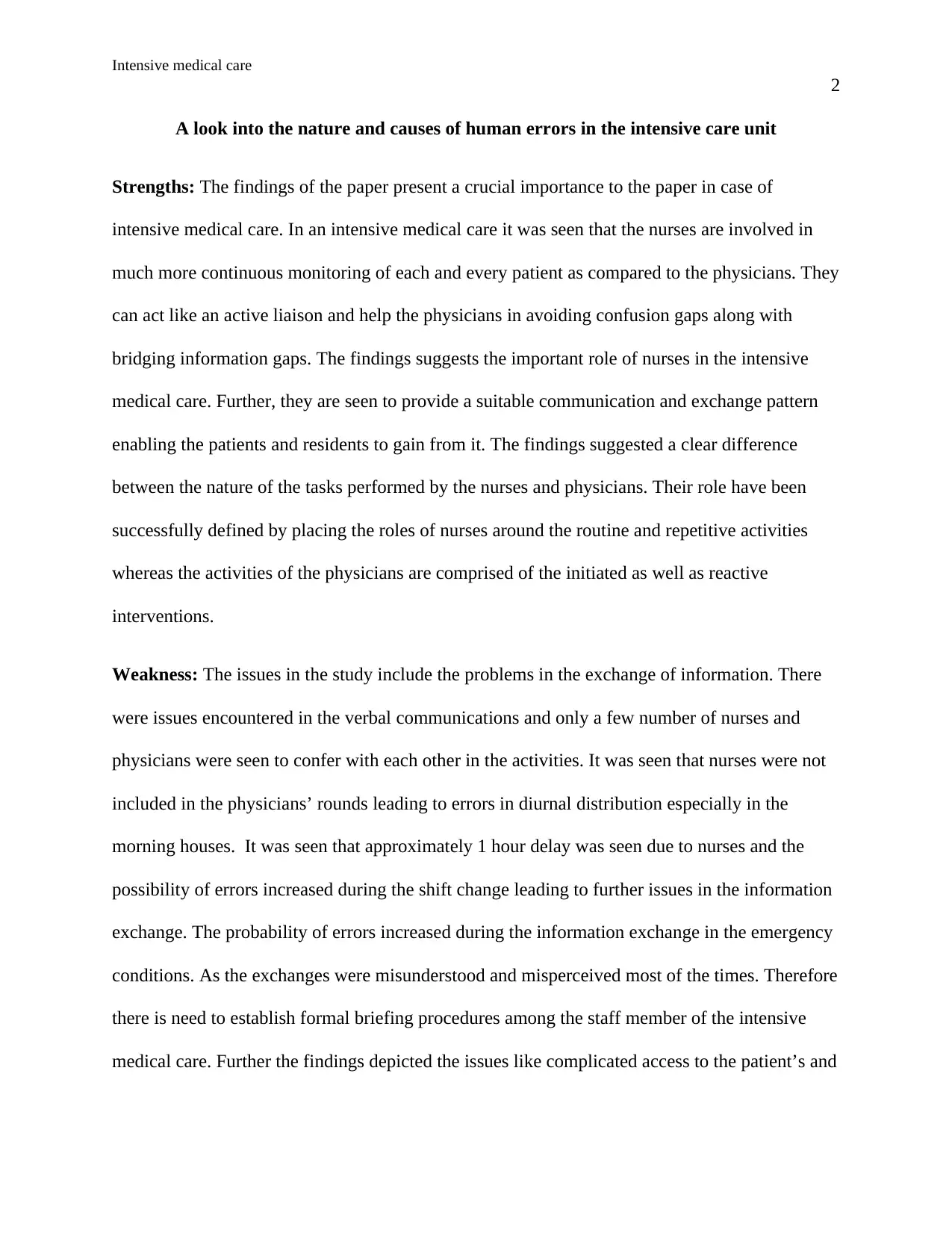A Look Into Human Errors in Intensive Care Unit
VerifiedAdded on 2019/09/19
|4
|603
|129
Essay
AI Summary
The paper examines the nature and causes of human errors in an Intensive Care Unit (ICU). It highlights the crucial role of nurses in monitoring patients and bridging information gaps between physicians. The study also identifies issues with information exchange, including verbal communication problems and delays during shift changes. The findings suggest a need to establish formal briefing procedures and reduce error rates by improving task requirements, technology, and worker abilities.
Contribute Materials
Your contribution can guide someone’s learning journey. Share your
documents today.
1 out of 4
![[object Object]](/_next/static/media/star-bottom.7253800d.svg)









